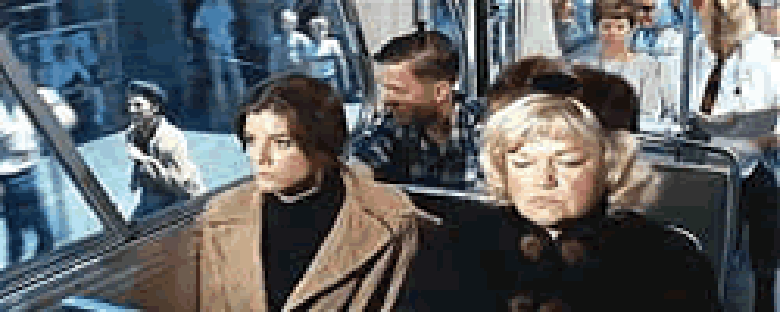Reviews
In a party thrown to celebrate his recent graduation from college Benjamin Braddock (a name whose alliteration mimics a super-hero’s) is delivered to his family’s friends as a reluctant debutant. He is destined to inherit the generic financial security afforded by every member present. We see each of them in a jerky, claustrophobic close-up; their eagerness and congratulation distil the breath of an inevitable and undesired fate.
Throughout this sequence Ben remains standoffish, physically implying that the uncertainty of his future (the guests, or their congratulatory demeanor suggest otherwise) is bothersome. He exits the crowd, returns to his room, and fixes his eyes on an aquarium. It is a womb he may not reenter.
The Graduate was immensely popular for its antiestablishment spirit, specifically the manner in which Ben refuses to don the generic destiny afforded and refined by his family and their socio-economic like. In an early scene he looks up at his parents and their neighbors, the Robinsons, from his pool raft. The sun is positioned behind them, and its beams — or, appropriately, the presence of undesired affluence — emits a dangerous glare.
Ben is a hero nonconformist seeking individual freedom. He is, also, an anarchist whose disdain for societal placement results in the interruption of other’s lives (namely, Elaine, whose marriage he will shamble). Ben can be evaluated as both The Graduate’s pro- and antagonist, its hero and villain.
Regarding the film in late-60s political ideology, The Graduate is a decidedly liberal film. In its principle, conflictive characters is political opposition (both in age and sex). Seen in its time, a decade of political identification (sexual, racial, etc.), The Graduate establishes clear pawns, and allows dualistic sympathy for either party in conflict. In the end, the liberal force succeeds, though there is the final implication that the success is met with apprehension and is not secure.
It is apparent Ben is retaliating against routine. His destiny to live as his parents and their friends is obvious. Theirs is a future robbed of variety, choice, and digression. Ben’s life adheres to this structure following his graduation and return home. There is an evocative montage, scored with Simon and Garfunkel’s trademark folk, in which we see, in a series of pans, Ben enter his pool to relax, exit slowly, update his affair with Mrs. Robinson, return to his pool, and so forth. He walks slowly and inattentively. The sequence is interrupted by a dialogue between the precarious couple, in which Ben suggests a conversation before their sex. The reluctant conversation results in insult for both parties, and the two resume their intercourse in mandatory disinterest.
It is suggested that Mrs. Robinson’s seduction of Ben is a corruption, one signified by shadow and the color black. In their first meeting, the affair commences when Ben shuts a hotel room door, casting darkness over the entire room (the staging is careful to relay this detail). There are other implications of such a corruption, as when Ben is seen driving into a highway tunnel, or is framed behind the chain-link fence at a zoo. He is contaminated, and any remedy requires breaking his routine and allowing his secret to be known, eschewing the cloak of indecision and abandoning his spelled-out fate. Such a remedy concerns the notion of “graduation.” The term has an obvious significance, though the film considers the figurative implications of its title. A college education has left Ben confused and bored. As the film implies, the events that follow his college graduation will do more to shape his future. It is a period of maturation, learning, and risk in the formerly careful stride of Ben’s life.
The final act concerns Benjamin’s attempt to disrupt the predictable transgression of his life. He has fallen in love with Mrs. Robinson’s daughter Elaine, his interaction with whom has been prohibitively forewarned. He chases her from Berkeley to LA and back. The sequence enables one of the film’s preeminently triumphant images, of Ben, in his Alpha Romeo, thrusting out of a tunnel of complete darkness onto the Bay Bridge. It is an exhilarating liberation, underscored with a reprisal of “Mrs. Robinson,” that announces, finally, Ben’s freedom.
But, the film ends without assurance for its characters. Ben arrives late to Elaine’s wedding, and rescues her after vows have been delivered. Her marriage secured, to another man, Ben is now able to relate to her, as he did with her mother; he will continue to violate the fidelity of others. It is a detail that suggests that Ben’s actions are impulsive, selfish, and vile. His ploy is triumphant (temporarily, at least), and is made of his own impulsive disregard for his superiors.
We don’t do comments anymore, but you may contact us here or find us on Twitter or Facebook.



